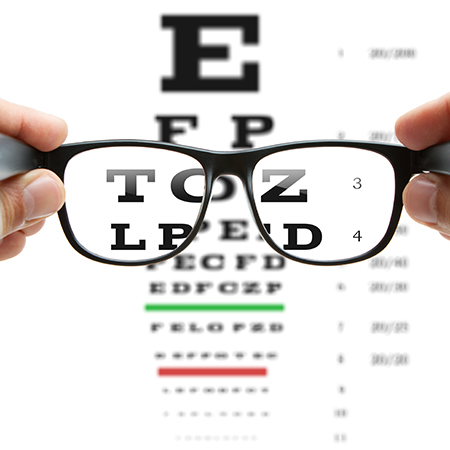
Nearsightedness (myopia)

What is myopia?
Myopia is diagnosed through a comprehensive eye examination. There are several treatments that our doctors will consider based on your individual eye health. The most common treatment is the use of eyeglasses or contact lenses to correct myopia, which correct the way your eyes refract light. Refractive surgery can correct myopia by surgical reshaping the cornea. Lastly, myopia can be treated using atropine drops, which can slow the progression of myopia.
Myopia, or nearsightedness, is a refractive error. This means that the eye does not properly bend (refract) light due to an eye that is longer than normal and a cornea that is too steep, which causes images seen by the eye to appear unclear. In myopia, the refractive error causes distant objects to appear blurred, while close objects remain clear.
Symptoms include:
- Eyestrain
- Headaches
- Squinting to see properly
- Difficulty seeing faraway objects
Eyedrops for Myopia
Low-concentration atropine has proven to be effective in diminishing progression of myopia, or nearsightedness, in children.
Atropine for the treatment of childhood myopia: safety and efficacy of 0.5%, 0.1% and 0.01% does
Low-concentration Atropine for Myopia Progression (LAMP) Study: A Randomized, Double-Blinded, Placebo-Controlled Trial of 0.05%, 0.025% and 0.01% Atropine Eye Drops in Myopia Control
Increasing your child's daylight exposure and reducing intense periods of near work may be helpful in decreasing myopic progression as well.
https://mymyopia.com/sunlight-exposure-reduces-myopia-in-children/
https://mymyopia.com/cram-school-attendance-correlates-with-a-high-risk-of-myopia/
Contact us today to schedule an appointment to determine your individual eye health and create a treatment plan that works best for you and your family.